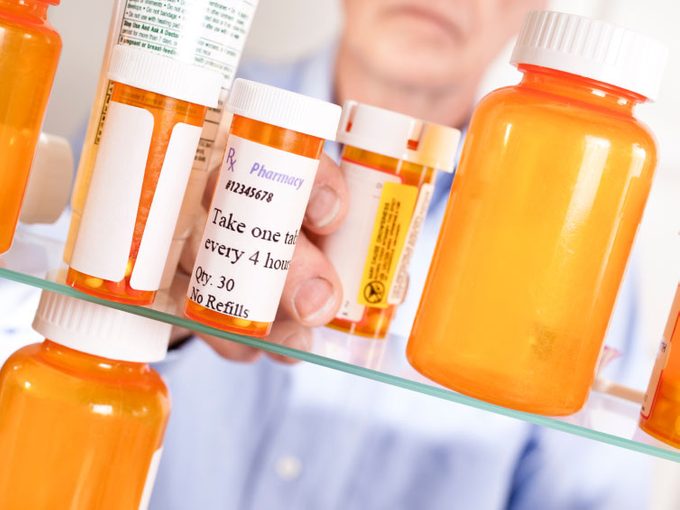Makeover Your Medicine Cabinet
Be prepared to deal with daily mishaps by stocking your medicine cabinet with the right items. Here’s what you need to include

It’s easy to accumulate bottles of expired prescriptions, nearly empty bandage boxes and tubes of who-knows-what, but maintaining an organized and up-to-date cabinet will ensure that you’re prepared when someone is sick, has a fresh scrape or is just in a rush to get out the door in the morning. Here are our best tips for medicine cabinet maintenance.
Meds don’t belong in the bathroom
Medications are sensitive to heat, humidity, light and moisture, so store them in a dry, dark place.
First-aid shelf
A few different types of painkillers are a must. ‘Acetaminophen will help with fever and pain, whereas ibuprofen will assist with inflammation, too,’ says Toronto pharmacist Victor Wong.
Stock up on bandages, and ensure that they’re within their expiry dates. The sticky adhesive can deteriorate over time, and some brands contain an antibiotic ointment that will expire.
A wound sterilizer, such as iodine or saline wash, helps clean cuts and scrapes, while antibiotic ointment prevents infection. One product that shouldn’t be used on fresh cuts is hydrogen peroxide. Recent studies have shown that it can impair wound healing.
Cold and allergy shelf
Be prepared for a cold with vaporizers and saline or decongestant nasal sprays. They can open up congested nasal passages so you can breathe with ease.
Soothe coughs, sore throats and aches with a combination cold product. Keep both daytime and evening formulas on hand. ‘The daytime version won’t make you drowsy, and the nighttime version will help you get some much needed rest,’ says Wong.
Fevers are a common complaint of cold and influenza sufferers. For an accurate temperature reading, use a digital thermometer. Unlike the old glass thermometers, which can leak poisonous mercury if broken, digital thermometers are quick and safe.
Antihistamines can help with seasonal allergies, as well as allergic reactions. Some products can cause daytime drowsiness, so choose one that won’t make you sleepy if you’re working or driving.
Oral care shelf
Keep your teeth and gums clean and healthy with toothpaste and dental floss. For cavity protection, choose a paste that contains fluoride. ‘Using fluoride toothpaste is recommended because it can help prevent tooth decay,’ says Wong. ‘Some people may be concerned about the chemical, but fluoride is only toxic if ingested in very large quantities.’
Mouth rinses can freshen breath and reduce the risk of cavities, plaque and gingivitis. ‘They’re a great addition to a regular brushing and flossing routine because they get into hard-to-reach places.’
Toothbrushes should be replaced every one to three months, or when the bristles begin to splay. If you’ve been ill, pitch your toothbrush: Germs and bacteria can get trapped in the bristles and reinfect you.
Practise safe disposal
Expired meds should never be thrown in the garbage or flushed down the toilet, where they can taint landfill sites and water supplies. Instead, take old bottles back to your pharmacy for safe disposal.




